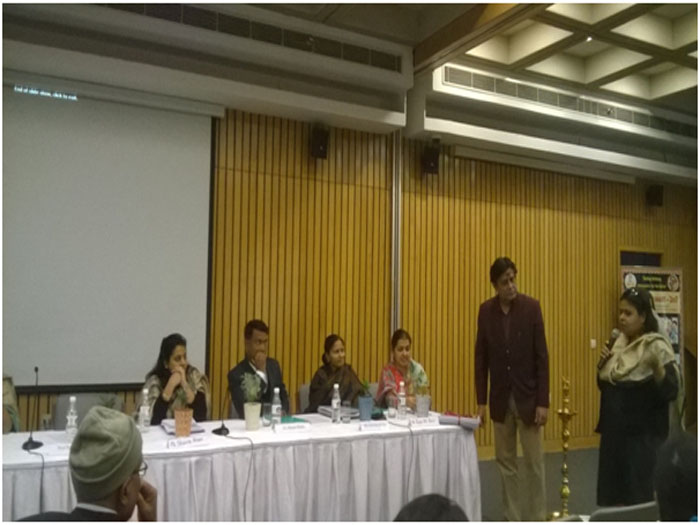International Conference on Comprehensive Mental Health Services in Formal Education
A two day International Conference on Comprehensive Mental Health Services in Formal Education Systems and Child Care Institutions was organised by Expressions India (The National Life Skills, Values Education and School and Community Wellness Program) and the Association of Indian School Counsellors and Allied Professionals at the India International Centre on 16th and 17th December 2016. The workshop was conducted by Dr. Jitender Nagpal, Program Director, Expressions India. He is also Sr. Consultant Psychiatrist, Incharge of the Institute of Child Development and Adolescent Health at Moolchand Medcity.
[gallery link="file"]
The workshop elaborated upon the importance of mental health programmes in schools. Nearly one in five children and adolescents have an emotional/ behavioural disorder at some time during their growing up years, regardless of where they live and how well to do they are. These disturbances include learning problems, physical health problems, and substance abuse. Furthermore, at least 3% of school going children suffer from serious mental illnesses such as severe depression, suicidal thoughts, psychosis, serious attention problems and an obsessive compulsive disorder.
There is no integrated policy on child and adolescent mental health, either at the centre or in any of the states. The countrys expenditure on mental health remains only 0.83% of the total budget. Therefore, schools are finding it necessary to expand their role by providing health services including mental health services to deal with factors interfering with the school life of a child. Therefore it is recommended that a comprehensive health programme at school should include health instruction at all levels, easily accessible health services, a healthy, nurturing and safe environment, and interaction with families and community organisations. It was emphasised that when teachers are actively involved in mental health programmes, the interventions will get delivered to generations of children.
Ms. Jayanti Dwivedi.













